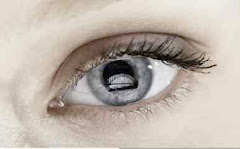This year's April 2010 WPC offered me a chance to connect more deeply with other anti-racists working across the country. It's an amazing learning opportunity. So, if any of you have yet to learn about WPC and attend, check out the basics regarding the mission of WPC at the conference website.
For me, a few lessons learned and/or renewed this year include...
1. Stay open. A year ago I left WPC worried that key relationships with important allies in the work were irreparably damaged. Conference calls throughout the year didn't assuage my fears. But, all sides coming together with open hearts has healed unintended woundings that I believe has allowed a strong foundation to build that will support us as we move forward. (Building a strong community around this work is so important for it to be sustainable, and part of that is ensuring that we get to know one another deeply. (Keeping our hands and hearts extended to one another is a key to building a strong movement for justice.)
2. Invite communication. Part of my pattern is to reflexively hunker down with those I know, staying locked in the comfort of secure relationships and friendships. But, the magic that happens when open invitations are shared and new allies walk through the door is energizing! New ideas, better programming, increased effectiveness.
3. Follow up. When something feels funny between you and someone else, follow up and ask what's going on. Turns out that it may just be reflective of your own process, but the conversation can reveal new insights. Doing this has opened the door to a fabulous new friendship, a person who will likely teach me a whole lot on our shared journey toward refining our ally work (particularly in terms of my facilitation abilities).
4. Be sure to see Joy DeGruy speak whenever possible! If you haven't heard of her, buy her book immediately - Post Traumatic Slave Syndrome (and she has a new workbook too!). It's essential reading, and hearing her speak is both emotionally difficult (in a very important way) and exhilarating. For me, I deeply appreciate her work on multiple levels. But, for brevity's sake - she offers a view that is honest, revealing, and healing all at the same time --- and her message is important for ALL people. And yet, she also recognizes her role in doing what she calls "ethno-specific healing work". She recognizes that every group has different healing work to do...since every group has a different and unique history. It is because she does what she does that I feel like I have support to do what I do with the Witnessing Whiteness work.
5. Be accountable to yourself and your allies. That's what this is all about, trying to remain accountable for continually self-reflecting, disrupting racism, and making personal change as needed to examine and challenge unearned privilege. Sharing my personal experiences in this blog is part of me holding myself to my word. If I say it to the world, it helps me feel even more responsible for living up to my own intentions.
Thanks to all who planned and participated. Each year I return to WPC it feels like I'm a kid whose backing up to that growth chart my mom used to measure how tall I was. Last year, struggling over that. This year, struggling over this. Next year, who knows? But, it's a fabulous journey and I appreciate WPC's supportive role.
Anyone want to share what they learned from the experience?



